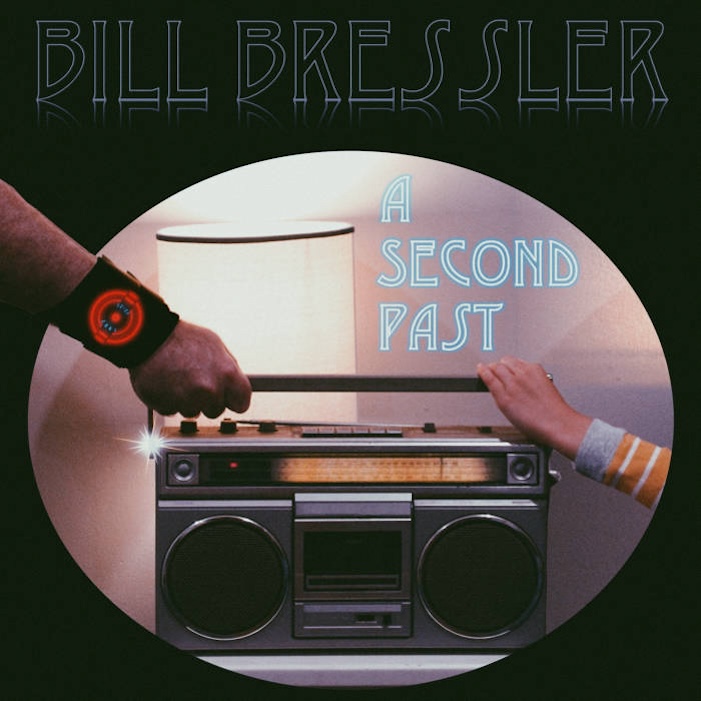
How to turn bad timing into good timing, you may ask? Be patient (a rare commodity in our current society it seems), think of the tortoise, not the hare and cross them fingers! Bill Bressler sent me a kind request to review his album a day before I departed for a well-earned 3-week European vacation (meeting 3 prog groups in the process). Bressler is a New Jersey multi-instrumentalist, having sent me his recently released sophomore album. I had seen the name but never got my hands on any material. Upon my return, and after polishing off a few urgent pending reviews, I eagerly addressed his work, in the usual fashion: CD in the SUV during my daily long road trips, so as to imbibe myself in something new that I might like. Reading names like Jacob Hom-Lupo (White Willow), Peter Jones and John Wilkinson (Ellesmere, The Swan Chorus, The Samurai of Prog and solo) immediately gave me perspective, and within seconds I was liking it so much, that the love word kept reappearing like some long-lost paramour. While there are 10 tracks clocking in at nearly 47 minutes, the opus can be definitely viewed as a prog opera, and I suggest following that honoured tradition by printing out the lyrics and follow the story of Maxwell Severin, Mr. Jones and the Girl from Salem.
Well, it begins with the appropriate “An Overture, A Sales Pitch”, hinting at the bombast to come and of course, injecting some Jersey humour, what with the deal offer add-on. Electronic pinging, organ ruffles, slashing guitars, parping synths, orchestral tapestry and the mood is set. Toss in some devilish piano, in pairing with a bubbly bass and the ‘opera” soars into the upper reaches of one’s imagination, a story line vocal and presto! The brief but resilient “A Victory for Science” serves to a moment of playful abandon, a tad quirky yet floating in a shimmering melancholy, underlined by a silky synthesizer foray. Swirling atmospherics not withstanding, the focus becomes acute on “There in Time”, highlighted by John Wilkinson’s reedy voice that should resonate like that former Genesis percussionist turned lead vocalist, the entire arrangement tight as a drum, with Stephen Goldberg’s e-guitar cutting sharply and a ton of dynamics everywhere. Positively raised eyebrow! “Don’t Forget” chooses to keep the foot on the pedal with a thumping groove, serpentine keyboard motifs, the Collins vocal style absolutely convincing in the patented neo-prog type, Vin Tabone harsh guitar, idiosyncratic synth loops dancing between the family handclaps.
“St Helen’s UK 12-27-1982” keep the proceedings in movement with enough contrasts and creative turns to make the journey continuously palatable. The first is piano led, a bouncy stage for the vocals to continue its explanatory journey, adorned by some topsy-turvy guitar ramblings and a shrewd organ bellow. The piano takes the lead once again, shoved aside by a delicate mellotron on “Salem MA”, before the lush Goldberg electric guitar establishes the sweeping melody as Wilkinson does a remarkable Collins’ rendition in terms of tone. Both these tracks could have been easily a pieces of “Then There Were Three”.
The longest track on the program, “Insofar” is the prog fortress on this recording, a whopping tour de force with mounds of huffing /puffing keyboards, sumptuous piano, insane synths, all egged along by pounding rhythmic support, crowned by Wilkinson’s pleading and sincere voice, who reiterates into the mike that ‘this is bad, very, very bad’, even though the number is very very good!
“The Girl from Salem” is another highlight piece as it introduces the female voice of Rebecca Farnham in an impassioned context with palpable moods, a witch falsely condemned, with Goldberg peeling off a sizzling ramble on the fretboard.
Another extended composition “It’s All We Can Do”, piano and voice verse at first, with a hesitant shift into the main instrumental chorus, carved out by the luminous synths and then the guitar follow-up and then, ‘the sense of wonder’ that crowns the intent. The second part is a lengthy and repetitive ‘nanana nana’, as the arrangement grows in volume and texture, ripping fretboard inflection to boot, with a swirling church organ outro.
Instrumental finale is de rigueur for this neo-progressive opera, putting a highly enjoyable release to bed. “As for McGee” drops the velvet curtain on a fine set of modern/retro selections.
4 instant yesterdays








